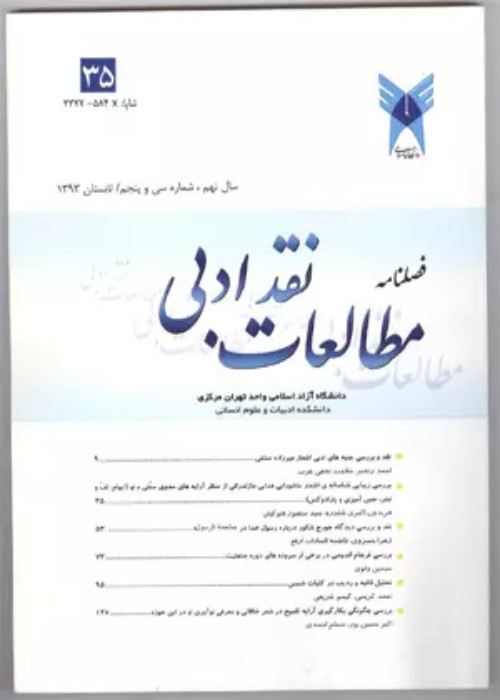Environment in Forough Farrokhzad's poetry; From Familiarity and cohabitation to dissolution
The history of showing nature in Persian literature is as long as the history of literature. Since the 20th century, man's view of nature has changed, which led to the emergence of ecologism and, as a result, the formation of "Ecocriticism". In this criticism, the relationship between literature and environment is examined. The purpose of this research is to investigate how nature is represented in Forough Farrokhzad's poetry; How are the pleasant or unpleasant phenomena of nature, as well as the gender-oriented representation of nature in her poetry? The research method is a combination of ecocriticism and rhetoric. The presence of nature is different in two periods of Forough's poetry. In the first period (captive, wall, rebellion), she looks at nature from the outside (in the form of similes and metaphors and rarely in animism and symbols). In the second period (Rebirth and let's believe the beginning of the cold season), nature is symbolic and alive. Forough identifies herself with nature and plants her hands in the garden. The pleasant natural phenomena in Forough's poetry indicate the lofty ideals of man; Like the sky and stars (superiority and awareness), birds (liberation and happiness), earth and plants (fertility and abundance), water and rain (purity and tenderness) and fire (love and passion). In her poetry, mud, rock, stone (indifference), night, snake, crow (reprehensible and talkative) and wind (death and inexistence) are represented in an unfavorable way. Forough reproduces the patriarchal historical and mythological culture. she represents the man like the sky, moon, sun and rain in a lofty, bright, warm, active, pure and purifying way; While the woman is shown as small, weak, receptive and polluted like a bird, earth, fields, dew, rocks and mud. Forough's poems are against the views of feminists.
- حق عضویت دریافتی صرف حمایت از نشریات عضو و نگهداری، تکمیل و توسعه مگیران میشود.
- پرداخت حق اشتراک و دانلود مقالات اجازه بازنشر آن در سایر رسانههای چاپی و دیجیتال را به کاربر نمیدهد.


